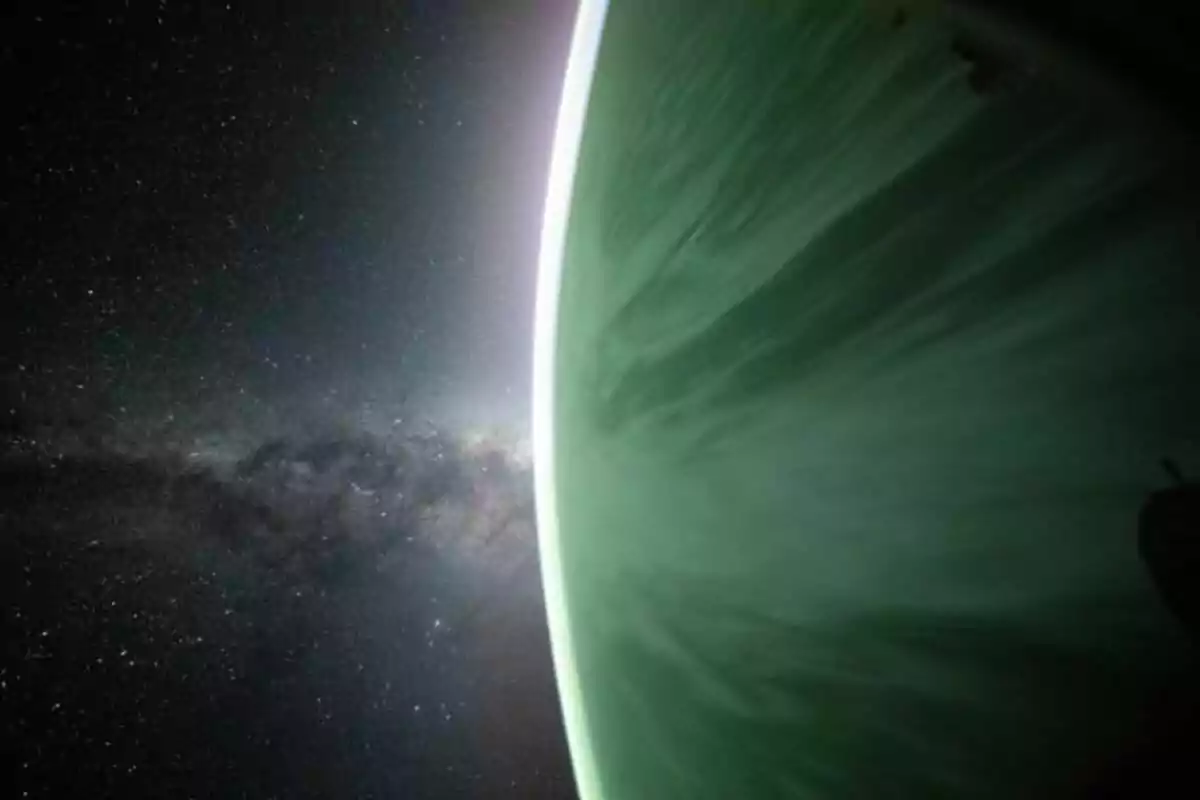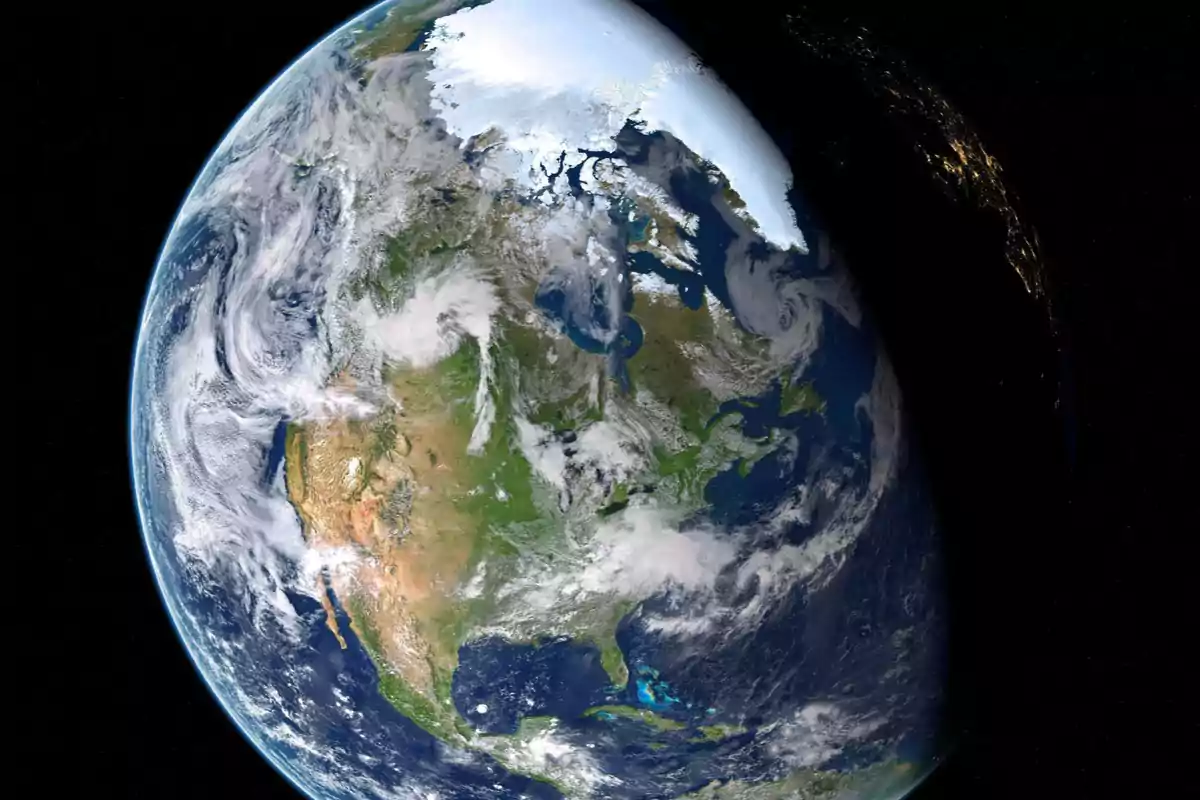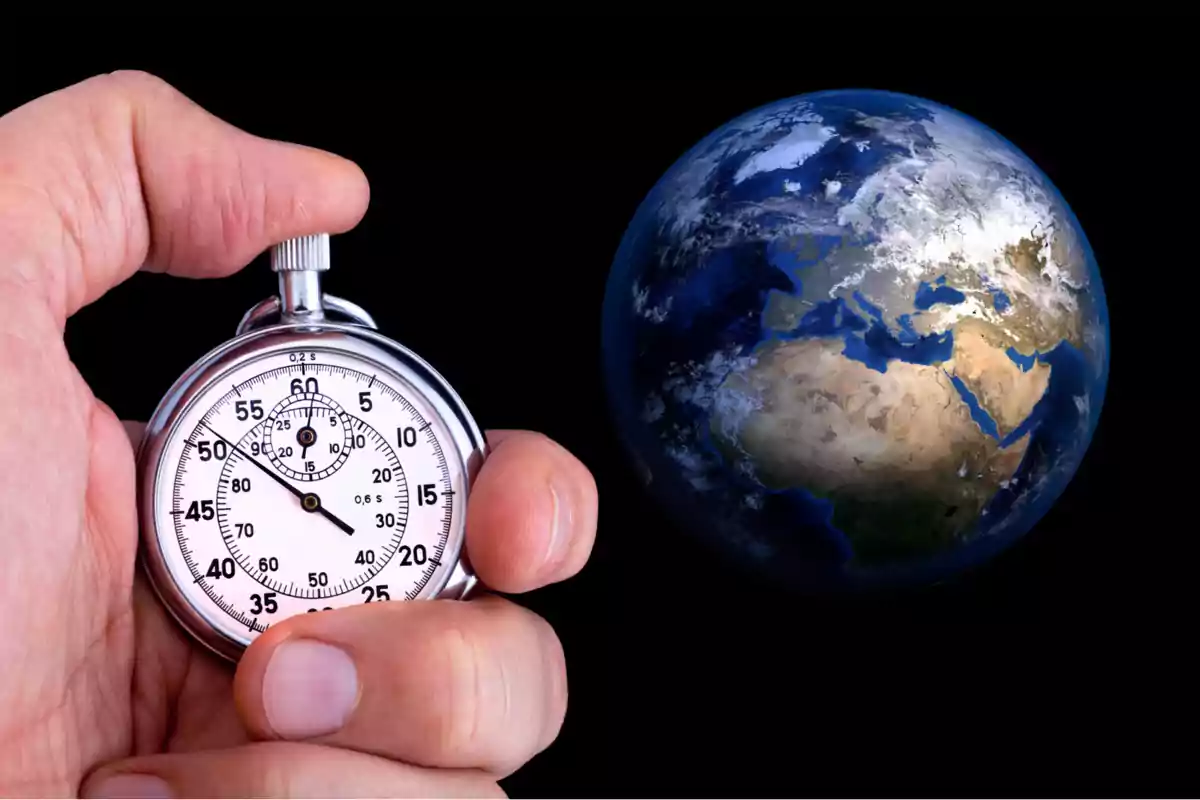The Earth never ceases to amaze us. For the past few years, our planet has been spinning faster, and that means the shortest day in history is just around the corner. But what's really happening? Is it dangerous?
The earth steps on the gas
Since 2020, astronomers have noticed something strange: the Earth is speeding up its rotation. This means it takes a little less time to complete a full turn on its axis. Although it may seem unbelievable, our planet is now moving faster than before, almost as if it's in a hurry.
The "normal" solar day lasts exactly 24 hours, or 86,400 seconds, but for the past three years, that duration has been shortening by milliseconds. In 2024, the record was a day that lasted 1.66 milliseconds less. It may seem like a small amount, and it is, but the atomic clocks scientists use to measure time detect those changes with great precision.

Why is the earth spinning faster?
The truth is that nobody has a definitive answer. For a long time, Earth's rotation had been slowing down due to friction caused by the tides. The Moon's gravity pulls on the water and creates resistance, as if it's slowing the planet's spin.
Since 2020, something changed. The Moon is in a slightly different position in its orbit, and that could be affecting Earth's speed. Experts believe the lunar orbit and other internal factors of the planet could be influencing it, although it's still a mystery to be solved.
What impact does a shorter day have?
Although we're talking about milliseconds, in the world of technology that can be crucial. GPS systems, telecommunications networks, and even financial transactions depend on perfect time synchronization. That's why, when the length of the day changes, those systems must adjust to avoid failure.
For daily life, you won't notice anything different. You won't run out of hours to sleep, and your phone's clock won't go crazy. This change is more important for scientists and technological infrastructure than for us in everyday life.

Looking toward the distant future
If Earth keeps speeding up its rotation, in billions of years the situation will change completely. It's estimated that Earth's rotation will synchronize with the Moon's orbit, making us always see the same lunar face. The tides will disappear, and the days will remain fixed.
Fortunately, that's very far in the future, and surely neither we nor many future generations will be here to see it. Meanwhile, we can keep watching with fascination as our planet behaves in ways we still don't fully understand.

